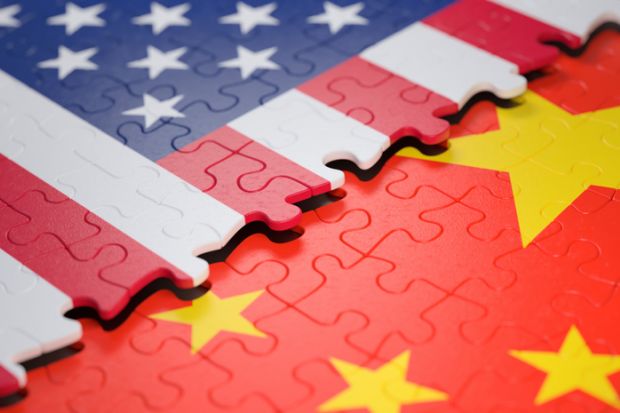The Biden administration plans a new trial for former University of Tennessee lecturer Anming Hu over his ties to China, extending a Trump-era criminal crackdown despite rising concern in its own party.
Federal prosecutors failed to secure a jury conviction in June, after two years of surveillance and six days of court presentations, in the wake of an admission by an FBI agent that his own agency had tried to get Dr Hu to spy for the US.
The case was the first to reach trial among dozens of instances in which the Trump administration suggested that faculty had been aiding a secretive Chinese campaign to extract secrets from US academic labs.
In a single-paragraph note, the US Justice Department said it would present the case again in the hope of winning the unanimous jury vote needed for a conviction.
Just ahead of that, Democrats in Congress organised a letter signed by 90 lawmakers from both chambers saying they were “deeply troubled” by the FBI’s treatment of Dr Hu, including a false assertion of spy activity to his university by the FBI.
The University of Tennessee did remove Dr Hu from his faculty position – associate professor of mechanical, aerospace and biomedical engineering – after the charges were brought, and it has declined to comment on the propriety of the case.
“We respect the role of the judicial system, and the university was cooperative to all parties involved,” a Tennessee spokesman said of the case against Dr Hu, a Chinese-born naturalised Canadian citizen.
Some US higher education leaders have expressed misgivings about the aggressiveness of the nationwide enforcement campaign, although they have more often acknowledged the risk of espionage on their campuses and pledged to help the government confront it.
Dr Hu’s case has been regarded by critics in academia and beyond as especially alarming, given indications from his initial trial that the criminal charges against him – wire fraud and making false statements – largely centred on alleged mistakes in paperwork filings.
That reflects a wider pattern in the cases pursued by the Trump administration, which insisted that failures by faculty to fully disclose any ties to foreign research partners could that mean they were receiving US grant money to perform work already financed by overseas sources.
More importantly, some federal officials have said, shortcomings in transparency could be an indicator of more harmful intent. Federal officials have been less clear, however, on how the underlying problem manifests itself in an academic setting, where research findings are intended to be shared.
Either way, the Justice Department claimed last year in the waning days of the Trump administration that the threat of legal action had led more than 1,000 researchers with ties to the Chinese military to leave the US.
Shortly before announcing its plan to re-try Dr Hu, the Biden administration’s Justice Department announced that it had withdrawn cases against five other scientists with alleged Chinese military ties.
Department officials suggested, however, that those dismissals were largely practical decisions given that any imprisonments following convictions likely would not exceed the time the defendants already had been detained or otherwise punished.
The 90 lawmakers, in their letter to the Justice Department, listed a series of punitive actions described during the trial as taken by the FBI against Dr Hu, and asked if it was keeping a 2016 commitment to department-wide implicit bias training.
In a four-paragraph response, the department said it saw no evidence presented at trial of FBI misconduct and no basis for investigating any complaint of such behaviour.
Dr Hu’s attorney, Philip Lomonaco, expressed disappointment in US higher education broadly for failing to clearly protest the federal government’s ongoing crackdown on Chinese scientists.
“I think academia is intimidated by the FBI,” he said. “I think they are afraid and easily brought under the influence of the federal government.”
Register to continue
Why register?
- Registration is free and only takes a moment
- Once registered, you can read 3 articles a month
- Sign up for our newsletter
Subscribe
Or subscribe for unlimited access to:
- Unlimited access to news, views, insights & reviews
- Digital editions
- Digital access to THE’s university and college rankings analysis
Already registered or a current subscriber? Login








